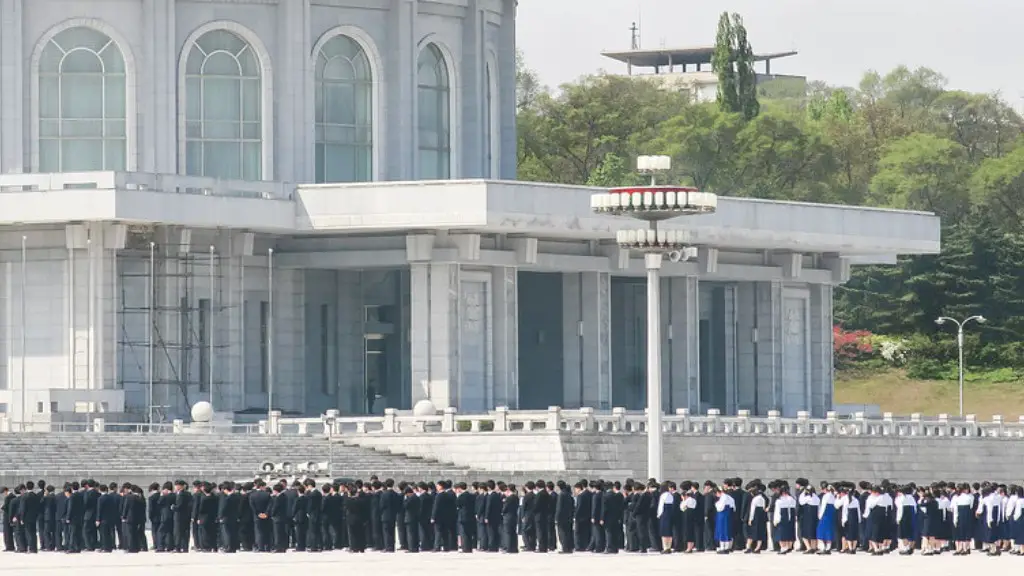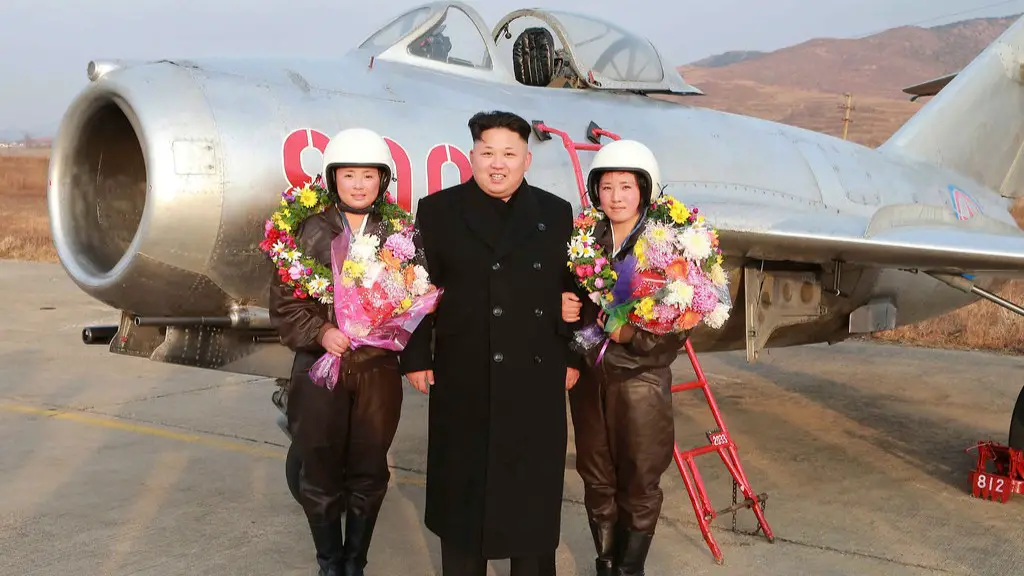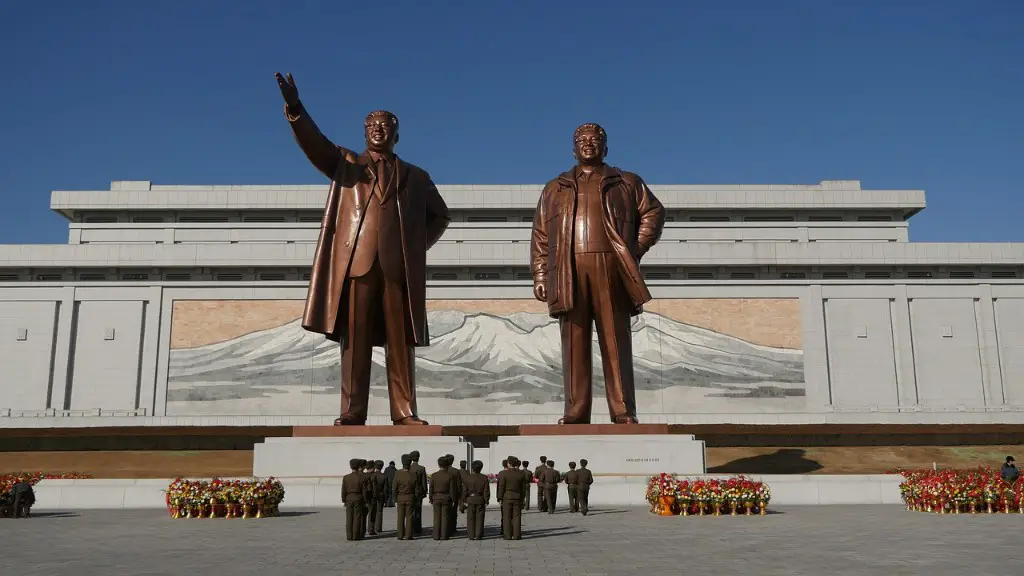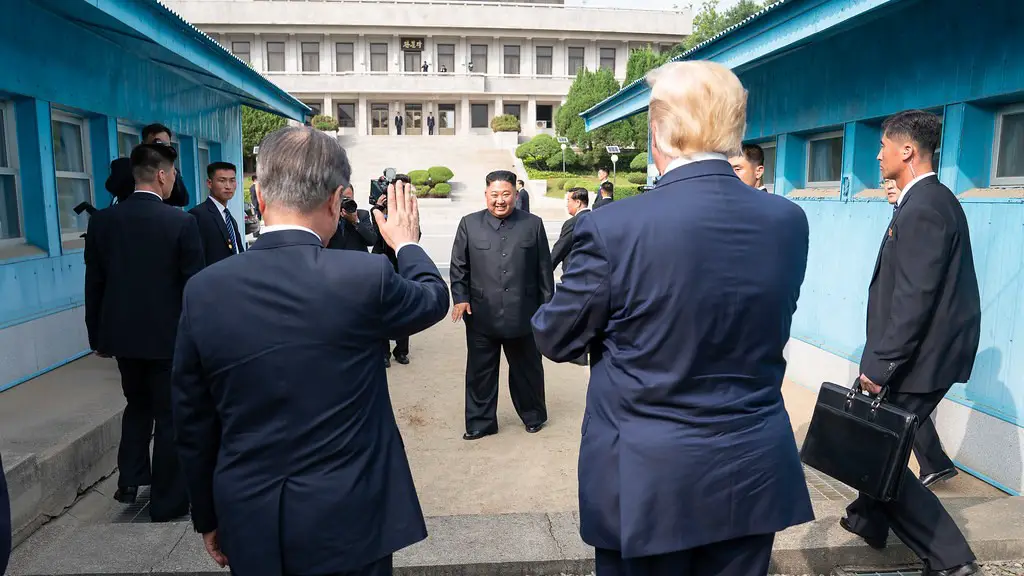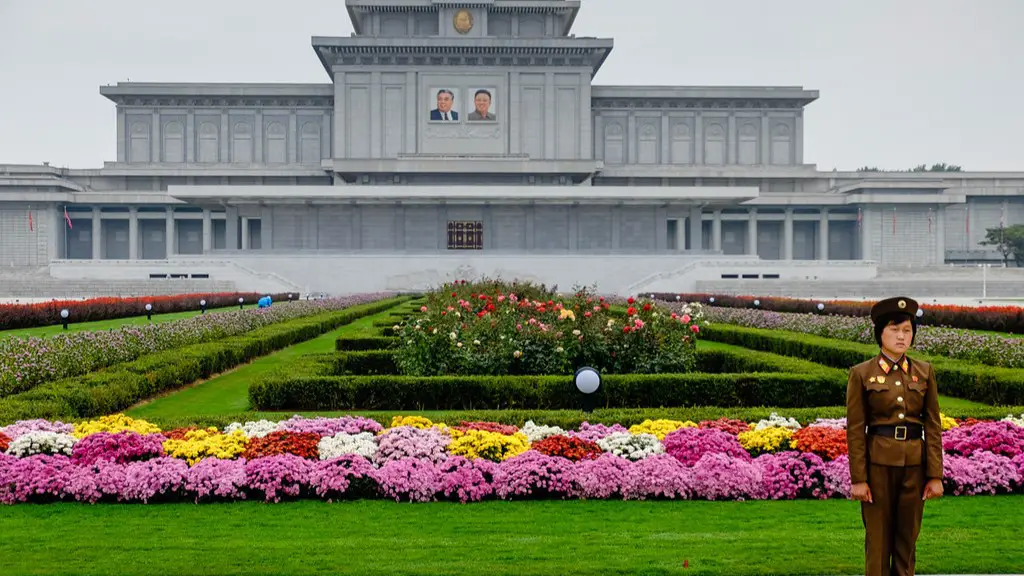North Korea has been a controversial subject for some time now. It is a matter of debate as to what is going to happen with the country, and there is no clear answer as of yet. This article will explore the current situation, provide data and perspectives from experts, and offer insights and analysis of the topic.
North Korea is a country which has governed by one party since 1948, the Korean Workers’ Party. The country has consistently denied basic rights for its citizens, resulting in a large amount of poverty and famine. It remains to this day one of the most isolated nations in the world, and any attempts by other countries to develop closer ties are met with hostility and suspicion.
In recent years, however, there have been small signs of a possible reconciliation between North Korea and the West. After years of escalating tensions, in 2018, two meetings took place between North Korean leader Kim Jong-Un and U.S President Donald Trump, as well as with South Korean President Moon Jae-in. Although the meetings produced no tangible results, they did appear to be a step in the right direction in terms of reducing the tensions between the two countries.
In recent months, however, the process appears to have stalled. North Korea has made it clear that it will not give up its nuclear program, and has continued to pursue the development of nuclear weapons. This has led to further sanctions from the US, and thus the situation has widened the existing rift between the two countries.
Experts have mixed views about what will happen with North Korea in the coming years. Some believe that North Korea is unlikely to give up its nuclear weapons, as they are seen as a key part of the country’s security. Others argue that North Korea could eventually come to the negotiating table, as they could see the benefits of economic cooperation with the West.
It is difficult to predict exactly what the future holds for North Korea. There are signs that there could be some movement towards a reconciliation between the two sides, but this process is likely to be a slow and difficult one. In the meantime, it is important that the international community continues to work together to ensure that tensions remain as low as possible between the two countries.
Impact on World Peace
The question of what will happen with North Korea carries major implications for world peace. If a resolution is not found, the threat of nuclear conflict will remain a real possibility, with potential devastating consequences. Experts have warned that a conflict in North Korea could rapidly escalate, with multiple countries drawn into the conflict.
The US and China have traditionally been the two major powers that have had the most influence over North Korea, though South Korea is beginning to play a more prominent role. Other countries like Japan and Russia are also trying to play a role in the process.
Most nations agree that a peaceful resolution is the desired outcome, and the international community has been largely supportive of efforts to try and find one, though it is still uncertain if this will be possible. Many experts argue that the best chance of success will come through the cooperation of different countries, and the use of strong economic sanctions.
It is clear that the situation with North Korea poses a major challenge to world peace, and finding a solution is vitally important to ensure that further conflict and suffering is avoided.
Economic Impact
The economic impact of the situation in North Korea is also highly significant. Given its geographic location, North Korea is well-placed to benefit from increased international trade, and could potentially benefit from investments in its infrastructure and economy.
Unfortunately, due to the state of international relations and the sanctions placed on the country, the potential for economic growth is severely limited. Experts agree that removing the sanctions and allowing for greater economic cooperation is likely to be a crucial step towards improved relations between North Korea and the West.
However, there is still considerable uncertainty about whether this will be possible. North Korea is thought to be concerned that if it agrees to give up its nuclear weapons, it will leave itself open to external interference or aggression. This is why any discussions with the international community must take into account the security concerns of North Korea.
Future Prospects
It is difficult to say what the future will hold for North Korea, as there are so many factors at play. However, it is clear that there is at least some hope of a resolution being found.
For the moment, the best way forward is to continue the process of dialogue and negotiation between the two sides. This is a difficult and time-consuming process, but it is the only way to move forward and avoid a dangerous escalation of the conflict.
It is important to remember, however, that any resolution must take into account the concerns of North Korea. This means that any agreement must include guarantees of security, as well as economic incentives, in order to make it a viable option for the country.
Political Impact on Region
The situation in North Korea has immense implications for the wider region, particularly in terms of political stability. The actions of North Korea have implications for countries such as South Korea, Japan, and China, as any conflict could have consequences for these countries in terms of both security and economics. It is therefore in the interests of these countries to work together to de-escalate the context and find a peaceful resolution.
A peaceful resolution will also have positive implications for the region economically. North Korea is well-positioned to become a major economic hub in the region, and could benefit immensely from greater economic ties with its neighbours. This will not only be beneficial for North Korea but also for the countries around it, particularly South Korea.
The situation in North Korea also has implications for the political landscape in East Asia. Any resolution will also require the support of China, and the country’s role in the process will be key in determining the outcome. The situation is therefore of great importance to the region, and it is essential that all the countries involved work together to ensure that a delicate balance is maintained.
Global Implications
Any resolution of the situation in North Korea is of immense global importance. The threat of nuclear conflict and the potential for geopolitical instability makes this a matter of serious concern for the international community. The actions of North Korea can have far reaching implications for the world, and thus it is essential that any resolution is approached with caution.
The US and China have traditionally been the two powers that have had the most influence over North Korea, and their support will be essential for any progress to be made. At the same time, however, it is important that the views and concerns of North Korea itself are taken into account. If a resolution is to be found, North Korea must be given a chance for self-determination and a guarantee of protection.
Ultimately, there are no easy answers to the question of what will happen with North Korea. It is a process that requires patience, caution, and understanding from all sides. Only by working together to ensure that all parties’ interests are taken into account will it become possible to find a peaceful resolution to this complex and challenging situation.

